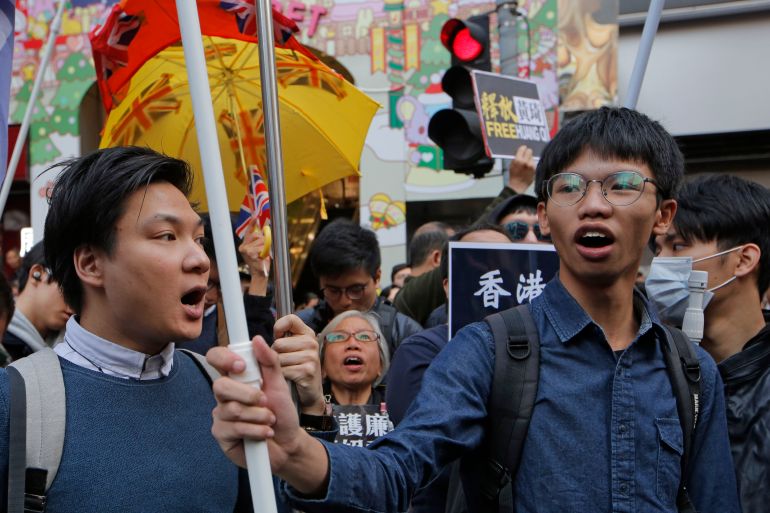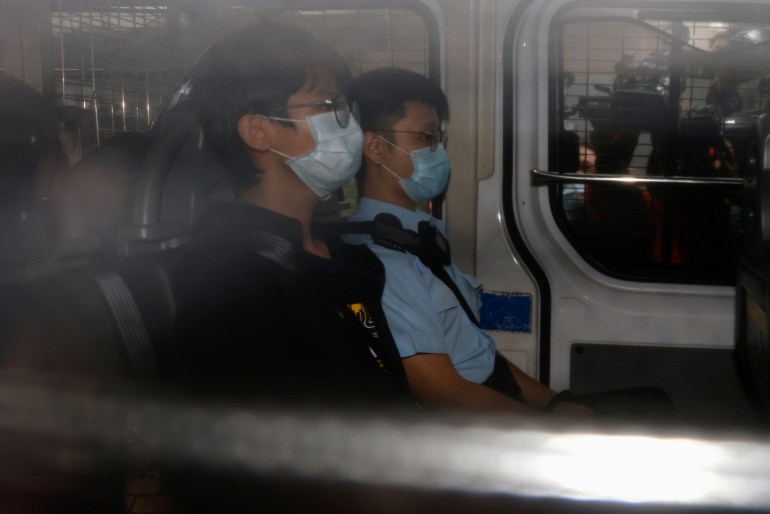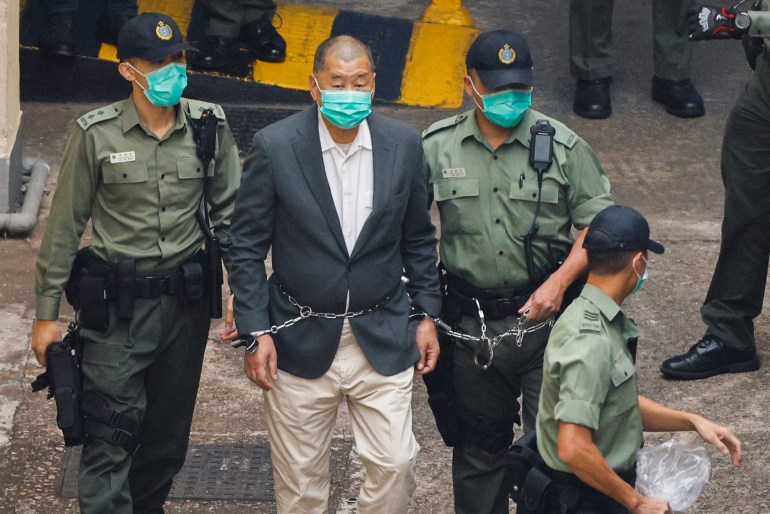Hong Kong teen activist jailed for China flag ‘insult’
Tony Chung jailed as crackdown on pro-democracy activists in once free-spirited territory accelerates.

Tony Chung, a 19-year-old pro-democracy activist, has been sentenced to four months in prison by a Hong Kong court after being found guilty of taking part in an unlawful protest and “insulting” China’s national flag.
Chung, who founded the now-disbanded Studentlocalism group, was convicted earlier this month for throwing the Chinese flag to the ground during scuffles with two members of a pro-China group outside the territory’s legislature in May 2019.
Keep reading
list of 4 items‘Never say never’: How two small Hong Kong firms survived COVID
Trials begin for 10 of the ‘Hong Kong 12’ detained at sea
Hong Kong pro-democracy tycoon Jimmy Lai granted bail
He is also awaiting trial for a charge of “secession” under a national security law, which was imposed by Beijing on June 30. The charge carries a maximum life sentence.
Chung was the first public political figure prosecuted under the new security law, which officials in Beijing and Hong Kong have said are necessary to restore order after mass marches triggered by opposition to a proposed extradition bill evolved into huge pro-democracy protests that sometimes descended into violence.
Chung was sentenced to three months each for insulting the national flag and unlawful assembly, and told to serve four months behind bars.

Magistrate Peony Wong Nga-yan, who heard mitigation letters from eight people including Chung’s family, secondary school teachers and classmates, and Cardinal Joseph Zen, said Chung’s offences were of “considerable” gravity, the South China Morning Post reported.
The sentence “is further evidence of Hong Kong’s continuing fall into authoritarianism,” Hong Kong Watch, a UK-based group supporting human rights and the rule of law in the territory, wrote on Twitter.
Chung also faces additional charges of money laundering and conspiring to publish seditious content. He has been in custody since late October when he was arrested by plain-clothes police opposite the US consulate.
Exile
An increasing number of pro-democracy activists have gone into exile since the security law was introduced. Activist Nathan Law, who is now in London, was among the first to leave, while Ted Hui, a former legislator for the pro-democracy camp announced he had left the territory earlier this month.
Last Sunday, CGTN, China’s state-run broadcaster, reported that Hong Kong police had put 30 people who are not currently in Hong Kong on its wanted list for suspicion of breaching the national security law, including Hui.

The security legislation, which has been criticised by countries including the United States and the United Kingdom, punishes what Beijing broadly defines as secession, sedition, terrorism and collusion with foreign forces with up to life in jail.
Prominent activists who remain in Hong Kong have either been jailed – like Joshua Wong and Agnes Chow – or face frequent arrests and multiple charges.
Jimmy Lai, a 73-year-old pro-democracy media tycoon who has also been charged under the national security law, was granted bail pending trial by Hong Kong’s High Court last week, but is now under effective house arrest and barred from giving interviews, speaking to foreign officials or posting comments on social media.
The court’s decision provoked serious criticism from China, which threatened to extradite Lai to the mainland for trial.